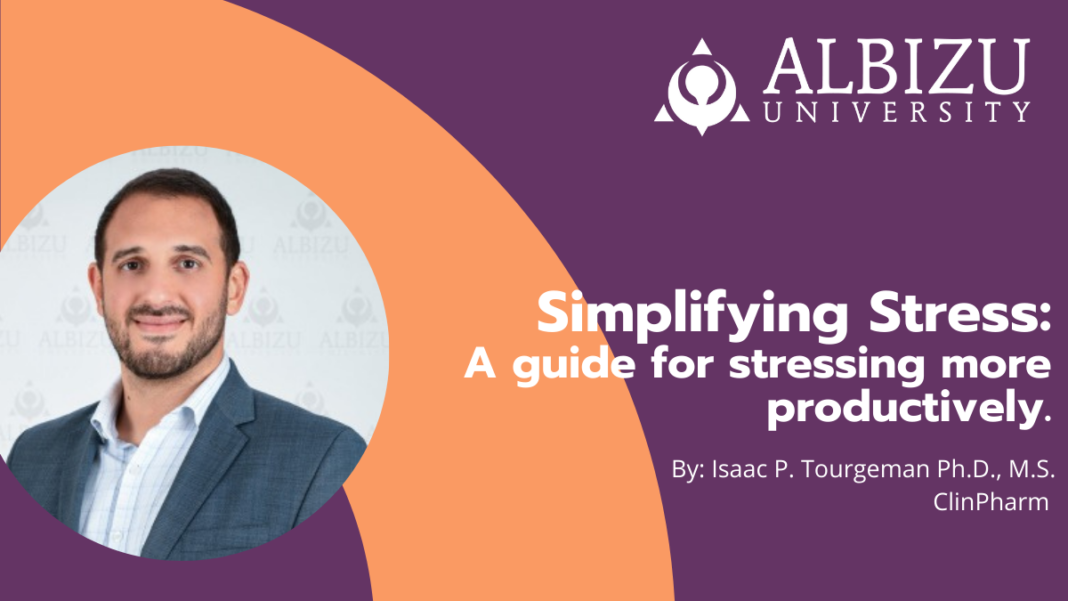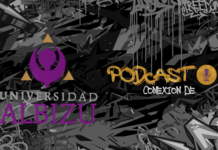A guide for stressing more productively.
Stress has a pretty bad reputation simply because it is often misunderstood. We continually hear people say that we need to remove stress from our lives. However, the problem with trying to eliminate stress is that we actually need it in order to survive.
But what exactly is stress and what does it do? Like almost everything else, it all starts with evolution.
We’ve all heard the phrase “fight or flight,” which describes an evolutionary adaptation of our sympathetic nervous system. Whenever triggered by a stimulus, the sympathetic nervous system releases chemicals in the body (hormones) that physically ready us to react and either fight and stay or to flee.
Stress hormones such as epinephrine (adrenaline) and cortisol divert blood to the muscles, increase heart rate, and speed up breathing. During periods of stress, our minds also become more alert and focused on problem-solving. Combined, these reactions enable us to better manage situations that are either threatening or challenging.
However, this bodily system is meant to only be active for occasional short bursts. So when we experience chronic activation (i.e. chronic stress) our bodies essentially begin to fall apart, similar to a car engine that is consistently being redlined or a cellphone that is never charged.
While stress is not inherently bad for us, the amount of time for which we endure stress can be. Thus, knowing how to manage stress effectively is more about learning how to “dose” it rather than how to eliminate it.
Recommendations on how to manage stress:
1. Reduce the amount of time you stress by taking mental and/or physical breaks: Modern living is all about ease through technology, which the prolonged COVID-19 quarantine situation has further escalated. The luxuries of having a personal driver or items being personally delivered are no longer reserved for the elite but can be accessed by anyone with a smartphone. On top of that, the digital age has brought us seemingly unlimited and instantaneous access to the latest gossip or late-breaking news, meaning we no longer have to wait for the 6 or 10 o’clock news reports, but instead, can simply scroll through our media stream and get blasted with information.
Yet, this access can negatively impact our brains. Since this type of information overload has never been present in our biological history, our brains are simply not equipped to deal with the constant barrage of every titillating headline kicking our sympathetic nervous system into action. Consciously, this type of response may often go unnoticed by most, because the threat is not obvious (unlike being chased down by a hungry lion).
Rather than getting us ready to fend off a predator, our stress responses are instead mistakenly activating us for a nonlethal or not-so-imminent threat. Secondarily, the cognitive part of our stress response tricks us into wanting to know more about the perceived threat as a means for survival.
Today’s constant stream of stressful information may deceive us into thinking that the next piece of information is crucial in order to be prepared to “fight or flight.” And, unlike experiencing fullness after eating, human beings have no receptor to let us know when we have consumed too much information.article continues after advertisement
2. Understand that if you are stressing about something, it’s because it matters to you: Often, we experience stress when something is important or critical to us, such as wanting to pass a test or avoiding exposure to a pathogen like the coronavirus. Stress in these situations is natural and expected, so understanding the underlying reasons we worry about it can make our own stressing feel less negative.
3. Like most things, balance and moderation are key: Like most things in life, balance and moderation are key, so managing stress is an important part of finding that equilibrium. Luckily, our bodies have an opposing system to balance our sympathetic arousal, known as the parasympathetic nervous system. So, in order to achieve balance at a biological level, we simply need to let our bodies do what they are meant to do.
Fortunately, we can consciously assist this process out by incorporating techniques that help reduce sympathetic arousal, such as relaxation training or physical exercise. Diversifying these techniques is important to success.

As a clinician who specializes in the assessment and treatment of brain injury, I often encounter patients whose primary way of coping has been taken away either by loss of means or access, such as no longer being able to exercise because of spinal injury. My role is to assist the patient in either establishing new ways of coping or by reinforcing previous, less utilized methods.
Whereas the majority of the population has not experienced a brain injury, many have recently experienced some level of loss of access or means due to the COVID pandemic. Therefore, it is increasingly important to establish multiple ways of coping and seeking mental health equilibrium. Whether it’s reading, running, or writing, it is very important to find fresh and interesting ways to approach life, or discovering completely new activities.
Unquestionably, many of us feel as though our lives are paused. For some, the consequences have been devastating. Still, it is in the midst of turmoil where growth mostly happens.
It is important to remember as we cope with today’s realities that the path to personal peace is an active one. Being idle does not ensure it. Instead, many find that the key is not to deny the obvious hardship they are enduring nor solely focus on the negative, to embrace the inevitable changes in life and know that the next step we take is always the one that matters most.
For the full article visit: https://www.psychologytoday.com/us/blog/everyday-life-simplified/202101/simplifying-stress






